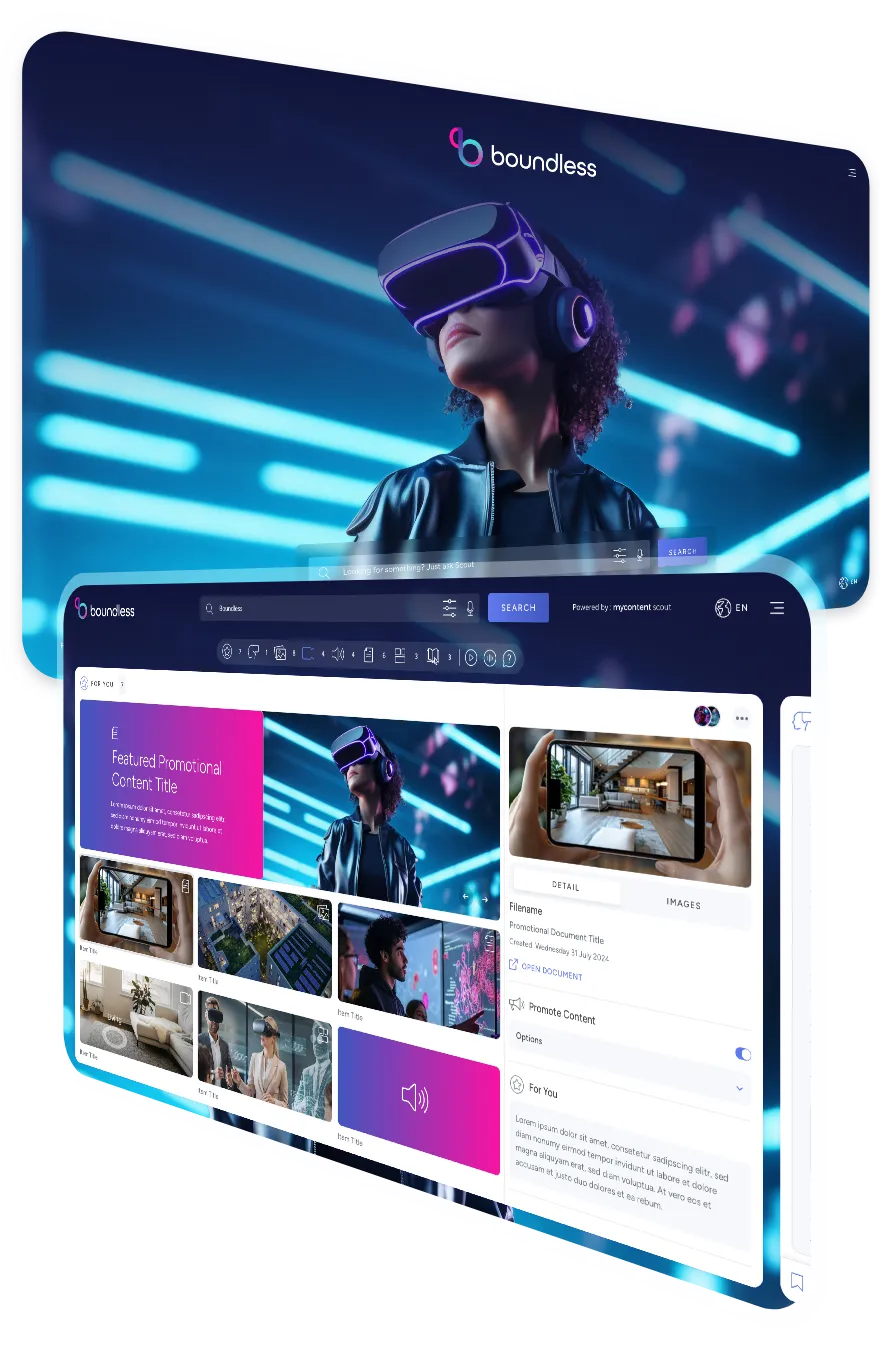
The hidden cost of disorganised knowledge is quietly draining your company's resources. Every day, your employees spend hours hunting through folders, switching between systems, and recreating work that already exists somewhere in your organisation. It's not just frustrating. It's expensive.
Knowledge management platforms are emerging as essential infrastructure for modern businesses, and the financial case is compelling. By centralising organisational knowledge and making it instantly searchable, these platforms can save companies substantial time and money whilst improving decision-making and collaboration.
The statistics are sobering. According to research from McKinsey, the average interaction worker spends nearly 20% of the workweek looking for internal information or tracking down colleagues who can help with specific tasks. That translates to one full day per week lost to information hunting rather than productive work.
When you break it down further, the numbers become even more striking. Employees spend approximately 1.8 hours daily searching for and gathering information. Across a working week, that's 9.3 hours per employee wasted on retrieval rather than execution. For a company with 1,000 employees, this inefficiency costs roughly £2.5 million annually in lost productivity.
The problem isn't just about time. It's about knowledge silos, duplicated effort, missed opportunities, and frustrated employees who can't access the information they need when they need it. Without a unified system, critical knowledge remains trapped in individual inboxes, scattered across file shares, or locked in the memories of a few key people.

Modern knowledge management systems transform how organisations store, retrieve, and leverage information. Rather than forcing employees to remember where files live or who knows what, these platforms create a single source of truth that understands natural language queries and delivers contextually relevant answers.
The most measurable benefit comes from reduced search time. Platforms like MyContentScout can save up to 446 hours per user annually by eliminating the daily frustration of information hunting. Instead of switching between email, SharePoint, Google Drive, project management tools, and messaging platforms, employees ask their question in plain language and receive instant answers.
Research from McKinsey suggests that when companies implement searchable knowledge systems, they can reduce the time employees spend searching for company information by as much as 35%. For high-skill knowledge workers, that time savings translates directly to increased output and faster project completion.
How many times has your team recreated a presentation, analysis, or report that already existed somewhere in the company? Without visibility into existing work, duplication is inevitable. Knowledge management platforms surface related documents, projects, and people automatically, preventing redundant effort before it begins.
New employees face a steep learning curve when institutional knowledge is scattered and undocumented. With a centralised knowledge platform, onboarding becomes systematic rather than haphazard. New hires can search for policies, procedures, and examples independently, reducing the burden on managers and accelerating time to productivity.
When information is hard to find, decisions get made with incomplete data. Knowledge management platforms ensure that decision-makers have access to historical context, relevant precedents, and collective expertise. This leads to better strategic choices and fewer costly mistakes.

Not all knowledge management platforms deliver equal value. The most effective solutions share several characteristics:
Unified Content Repository The platform should connect all your company's knowledge sources: documents, videos, meeting transcripts, project notes, external links, and archives. MyContentScout unifies these disparate sources so employees never need to switch systems or remember where information lives.
Natural Language Understanding Users shouldn't need to learn special syntax or Boolean operators. AI-powered search capabilities understand intent and deliver relevant results even when queries are imprecise or conversational.
Context-Rich Results Beyond simple document retrieval, advanced platforms provide connected insights. MyContentScout links related people, projects, documents, and definitions, helping users explore connections they didn't know existed and understand information in its full context.
Content Transformation The ability to repurpose information increases its value. Features that convert content into summaries, audio, flashcards, or reports extend the utility of existing knowledge and support different learning styles.
Cross-Language Capabilities For global organisations, language barriers fragment knowledge. Cross-language search allows employees to ask questions in one language and receive accurate answers from content in another, breaking down silos and enabling worldwide collaboration.
Usage Analytics Understanding how your organisation uses knowledge reveals content gaps and trending topics. This data helps optimise your content strategy and focus resources where they'll have the greatest impact.

HR teams manage vast libraries of policies, procedures, training materials, and historical records. A knowledge management platform gives them a single place to access everything, instantly search and retrieve answers to employee questions, and ensure everyone stays current with the latest guidelines. This reduces time spent hunting for information, improves onboarding, and helps HR provide consistent, accurate support.
Marketing teams juggle brand assets, campaign guidelines, content libraries, and historical materials. With unified knowledge management, they can instantly retrieve the content they need, ensure messaging stays on-brand, and keep the entire team aligned with current campaigns. This accelerates content creation and helps marketing deliver consistent, high-quality campaigns across every channel.
Service teams need immediate access to knowledge bases, FAQs, troubleshooting guides, and historical case records. Knowledge management systems help them find answers to customer questions faster, provide accurate solutions, and ensure every team member follows the latest procedures. This reduces response times, improves customer satisfaction, and delivers consistent service quality.
Technical teams require quick access to documentation, design specifications, project notes, and historical records. A centralised knowledge hub helps engineers search and retrieve information instantly, ensure everyone follows current standards, and streamline cross-project collaboration. This reduces time spent hunting for answers, accelerates problem-solving, and improves solution quality.
Deploying a knowledge management platform requires thoughtful planning. Start by auditing your current information landscape. Where does knowledge live today? What are the biggest pain points? Which teams would benefit most from improved access?
Data Readiness Matters The value you extract depends on the quality of what you feed in. Ensure your content is reasonably organised and accessible. You don't need perfection, but some baseline structure helps the platform deliver better results.
Security and Access Control Different information has different sensitivity levels. Choose a platform that integrates with your identity management system and supports granular permissions, ensuring only authorised users can view sensitive content whilst maintaining flexibility for complex organisational structures.
Change Management Technology alone doesn't change behaviour. Communicate the benefits clearly, provide training, and make adoption easy. Consider starting with pilot teams who can become internal champions and demonstrate value to sceptical colleagues.
Customisation and Branding A platform that matches your organisation's visual identity feels like a natural extension of your internal ecosystem rather than an alien system. This increases adoption and reinforces that the knowledge base is part of your company culture.

Track specific metrics to validate your investment:
Time Savings: Monitor how quickly employees find information compared to the previous baseline
Search Success Rate: Measure how often users find what they need on the first attempt
Content Usage: Identify which knowledge gets accessed most frequently and where gaps exist
Employee Satisfaction: Survey users about their experience and confidence in finding information
Productivity Metrics: Track project completion times and output per employee
The business case for knowledge management platforms is straightforward. When employees spend less time searching and more time executing, productivity rises. When decisions are informed by comprehensive information rather than limited recall, outcomes improve. When onboarding is systematic rather than ad hoc, new hires contribute faster.
When evaluating platforms, prioritise functionality over features. Ask potential vendors:
Look for solutions that offer flexibility without complexity. The platform should adapt to your organisational structure rather than forcing you to conform to rigid templates.
In today's economy, knowledge work dominates most industries. The companies that leverage their collective intelligence most effectively gain sustainable advantages over competitors still struggling with information chaos.
A well-implemented knowledge management platform doesn't just save money. It makes your organisation smarter. It preserves institutional knowledge when employees leave. It surfaces insights that would otherwise remain buried. It enables collaboration at scale by connecting people with shared interests and complementary expertise.
The question isn't whether your company can afford to implement knowledge management. It's whether you can afford to continue without it. Every day of delay means more hours wasted, more knowledge lost, and more opportunities missed.

If you're spending millions on lost productivity whilst your employees drown in information overload, it's time for a different approach. Modern knowledge management platforms like MyContentScout offer a path forward: unified content, intelligent search, context-rich answers, and measurable time savings.
The technology exists. The business case is proven. The only question is when you'll stop accepting information chaos as inevitable and start treating knowledge as the strategic asset it is.
To learn more about how MyContentScout can help your organisation save time and money whilst improving knowledge access, book a demo today or get in touch with our team.

Get in touch with our team to arrange a demo of MyContentScout and see how it could transform your workflow with AI search, content analysis and categorisation, saving you time and providing smart insights from various sources.
